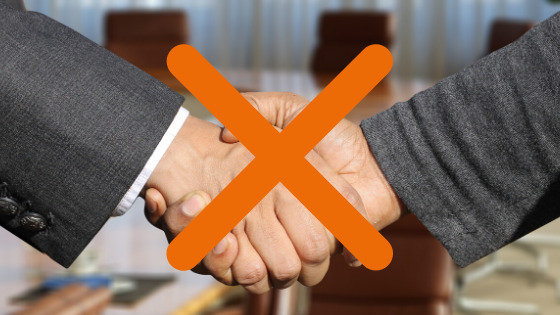All Posts
COVID-19 ADVICE
Coronavirus, advice for our small business community
06-03-2020

This week I have been regularly drawn to the live feeds on news sites as the number of confirmed Covid-19 cases has increased. With two cases also being close to home, small business owners like myself need to think seriously about protecting our businesses and our people.
Here's our advice:
Protecting your people (employees, customers and suppliers) from coronavirus
Remote working
If you have staff, contractors or perhaps freelancers working for you, it's important that you do what you can to minimise the risk of them contracting or spreading the virus. Many businesses are exploring remote working as a contingency plan should restrictions on movement be introduced in the future as the result of an epidemic. However, it may be advisable to encourage remote working where possible now, especially if an employee is at risk because of underlying health issues.
Now's also the time to make sure you can actually facilitate remote working, especially for critical staff. Make sure they can access the systems and apps they need online, and that they're secure. Employees may have to use their own devices to work remotely, and their own WiFi, so speak to your IT provider about best practice for protecting your business from cyber security risks with people working from home.
Your premises
While planning for remote working is a good idea at the time of writing most businesses remain open and hope to stay that way. If you have premises ??" offices, workshops, studios or retailer outlet ??" there are things you can do to minimise contact with the virus.
Hygiene is the most important part of this. Provide hand sanitisers for staff, customers and other visitors, and promote good hygiene and cleaning of surfaces such as hand rails and door knobs. Hand hygiene posters are also available to download free online from various organisations to encourage employees and visitors to wash regularly. If you're worried that someone has visited your premise who may have the virus, get an environmental cleaning company in to do a deep clean. Emma Bateman at Red Roof Services (a SiGNAL Village resident) is a specialist decontamination cleaner ??" website here >>>
It's also advisable to avoid contact with other people so no hand shaking, fist bumping or air kisses. At SiGNAL our BiZHUB members were experimenting with a variety of different approaches including elbow and ankle bumps!
If any member of staff are showing symptoms of the Coronavirus, they should call NHS 111 or use their online Coronavirus service.
Your supply chain
For some businesses the impact on the supply chain is a serious consider. No more so than for Emma mentioned above who has already experienced issues with getting hold of face masks and hazmat suits.
You may not be affected now, but if you get supplies either directly or indirectly from the worst affected areas (China, South Korea, Iran and Italy) you may have issues in the future. Speak to your suppliers to see what they are doing to protect supply chains and what problems they anticipate. You should also keep in regular communication with clients that may be affected as a result of distribution and explore whether you will be in breach of contract if you can't fulfil orders or services as a result.
Do a risk assessment to explore all these scenarios and also speak to your bank to discuss the impact on your finances if you can't trade as normal.
Should the government be doing more to help small businesses?
Many of our small business community will struggle if they contract the virus and have to self-isolate or need a hospital stay. While the government has announced the employees will able entitled to sick pay from day 1 if they need to self-isolate or contract the virus, this doesn't help the self-employed.
Currently there are no measures to help business owners who find themselves unable to work or to support small businesses that are adversely affected because of the virus. The CIPD, the human resources trade body, is urging the government to step in. Ben Willmott, head of public policy at the CIPD, said:
"We think there may be a case for the government to create some sort of compensation or hardship fund to help individuals such as the self-employed, temporary or low paid staff if they are not eligible for sick pay or paid leave.
"This could help people in less secure employment get through these exceptional events and would minimise the risk of people coming into work and spreading the virus if they have been exposed."
IPSE (the Association of Independent Professionals and the Self-Employed) is also calling on the government to prevent freelancers and the self-employed from being 'left behind'. Andy Chamberlain, Deputy Director of Policy at IPSE, said:
"Freelancers must not be an afterthought in government planning. They should not be left to choose between their health and their income because they do not have sick pay.
"IPSE has written to the Health Secretary calling on him to urgently issue guidance for freelancers. We've also called on him set up an emergency fund to support freelancers and contractors who cannot avoid losing income because of the outbreak.
"If you are freelance, you should not put yourself more at risk just because you are self-employed. Start discussing arrangements with your client now, plan your income for the next few months carefully and, if possible, prepare to work remotely. Crucially though, whether you're an employee or a freelancer, health comes first."
What we're doing at SiGNAL BiZHUB
As a workspace provider it's challenging for us to deliver these services virtually! However, our Hub members can continue to get the benefits of the SiGNAL BiZHUB remotely if they're self-isolating or avoiding public spaces.
We will be live streaming the Friday morning sessions during the outbreak, and members can also log in to the BiZHUB portal to download workbooks and view the presentation deck.
I hope that we can all ride out this particular storm and ensure that our businesses come out the other end in good shape.







